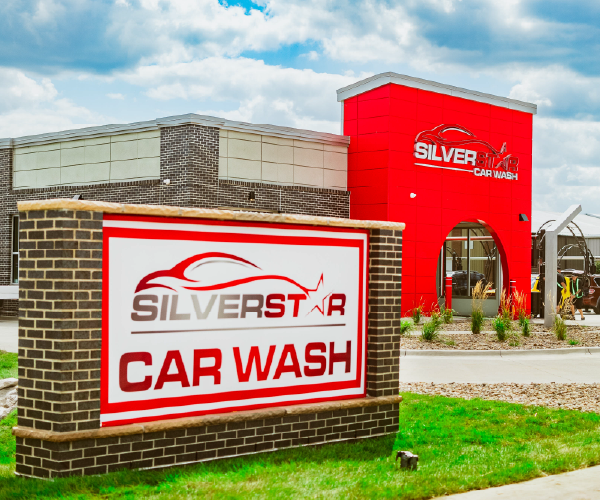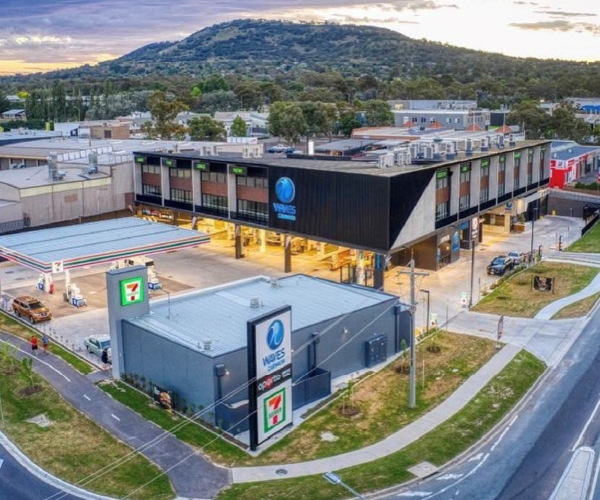
People, Planet, Profit
July 1, 2012
5 minute ReadIt’s easy to measure business success in dollars and cents. Profit ultimately sustains companies. It allows certain franchises to expand, while lack of funds causes others to close shop.
But a nobler concept of corporate responsibility is starting to find its way onto the American business landscape. Triple bottom line (TBL) management, which takes into account people and the planet as well as profits, has been adopted by some of the largest companies in the nation. Ben and Jerry’s and Walmart are among leaders in the TBL movement that incorporates three dimensions of performance — social, environmental and financial.
A TBL company, for example, may bypass developing on wetlands even if the cost of the property was cheaper. Or it may refuse to farm out manufacturing to countries that pay below a living wage.
In theory, it sounds ideal. But can it work in the car wash industry?
Shel Horowitz, a green marketing consultant, thinks car washes can find a way to balance planet and profit. He wrote Guerrilla Marketing Goes Green: Winning Strategies to Improve Your Profits and Your Planet (co-authored with Jay Conrad Levinson), which discusses green marketing strategies.
“The first car wash in an area that would come out with biodegradable product would have a marketing edge,” Horowitz said.
That edge, Horowitz said, can result in more business.
“I don’t think you take the profit motive out of the picture,” Horowitz said. “You present it as an opportunity for someone to go to a car wash that they can feel good about. You may have to spend 10 to 15 percent more for a different solvent that’s more expensive, but long term you can make up for it with more business. So that can level out the capital costs.”
Horowitz said it is important for car wash owners to become aware of TBL business practices.
“First of all, there’s a marketing advantage,” Horowitz said. “Second of all, there’s the longer term benefit of being ahead of the curve when it comes to regulation. And it will come. It might not be for two years or for 10 years but by 2016, I think you are going to see a high consumer demand for green products and green industries.”
Dry Clean Goes Green
One industry that’s seen a growth in green awareness is dry cleaning. John Hamilochoris owns On the Spot Dry Cleaning, the first and only green dry cleaning service in Gainesville, Fla. Hamilochoris, who has spent 21 years in the garment industry, opened his first all-green dry cleaning shop in 2006. He has since expanded to three locations and is in the process of opening a fourth store.
“We define green as we do not use perchloroethylene, we do not use petrochemicals, we do not use nasty chemicals that are associated with dry cleaning,” Hamilochoris said. “I asked the Gainesville EPA to hand me a list of any chemicals that were required to be reported and told myself I wasn’t going to use them.”
Instead, Hamilochoris uses natural, biodegradable solvents that are less damaging to clothes.
“It’s a gentle solvent that’s a good carrier of detergent, no odor,” Hamilochoris said. “The customer doesn’t have to worry about a funky, three-day old, nasty, dirty smell.”
Hamilochoris admitted it’s a challenge to run a green business but said certain benefits outweigh the costs.
“We put a lot of effort into our cleaning,” Hamilochoris said. “We put in 12 to 16 hour days. I think in business, it’s become too easy to look at the quickest way and the cheapest way to do things. You lose sight of things like are you dependable, do you hold the door open when the customer comes into the shop, those kind of traditional things that makes the customer feel valued.
“It does translate into a certain base of people when your business is green. They feel good about getting their clothes washed there. It’s not the first thing they think about. They are happy that there is no odor. When they get their clothes, it smells like their clothes.”
Should Car Washes
Commit to TBL?
The green movement has yet to hit the car wash industry in full force. But there are some car wash owners that have employed TBL practices with success. Chuck Kaady, owner of Kaady Car Wash locations in Portland, Ore., and Vancouver, Wash., has installed a wind turbine at his Vancouver location that generates 3,800 kilowatt hours per year. Kaady also reclaims all of the water at his locations.
“As car wash operators, we have to be responsible so we’re not part of the problem, but part of the solution,” Kaady said. “You don’t want to be in a position where water is so scarce that you have to close a professional car wash for one day or two a week, like in some areas.”
Kaady does not view a conflict between planet and profits when running a car wash.
“I think it’s something that you have to do to continue to improve your business,” Kaady said. “We’ve changed our lighting and equipment over the years to decrease utility costs, changed variable frequency drives. Anything you can do to reduce the amount of electricity and energy that you are using is critical.”
Evan Porges, owner Prime Shine Car Wash Inc. in Modesto, Calif., has expanded to four locations in five years despite the recent national economic downturn. Porges has utilized TBL principles for the past 20 years, referring to them as “best practices” in his corporate mission statement.
“From its very onset, our company has sought to be the very best by taking exceptionally good care of our employees, using environmentally sensitive chemistry (non-caustic, phosphate free, non-acidic), while being corporate stewards in all of the cities that we operate,” Porges said.
Porges said it’s vital for other car wash owners to become aware of TBL practices.
“Now more than ever, car wash operators should adopt the concepts of triple bottom line business practices,” Porges said. “The consumer today is sophisticated, alert and very much aware they have choices of who they want to do business with. Additionally, they tell their friends.”
“The car wash industry has historically had a negative reputation and a stigma attached to its operators and employees. Rundown facilities that foster illegal activity and employees that are the bottom of the barrel is what many see of our industry. Becoming aware of triple bottom line business practices and then actually employing them would be a great start to enhancing our industry’s image.”
Porges said operating his car wash with TBL practices is more costly in terms of up-front dollars. But he takes personal pride in knowing that he’s running a business that has a high level of customer satisfaction, employee satisfaction and a reputation for giving back to the community. All three factors have helped his business remain profitable.
“It is just simply more fun and rewarding to run a business this way,” Porges said. “I couldn’t imagine being a business person today and operating in any other way.”







